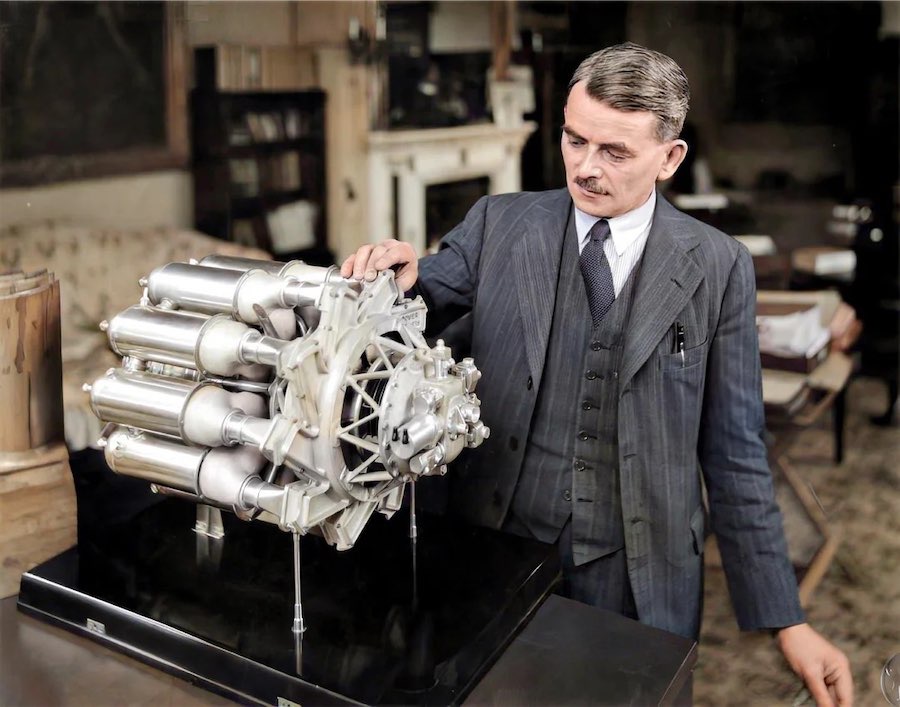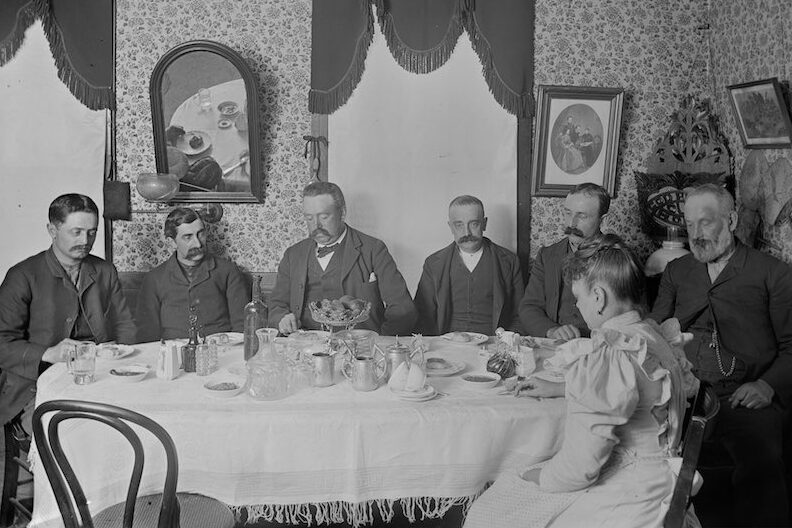
Whimsy columnist CLIVE WILLIAMS explains why some aeroplanes still use propellers when they could be using jets.
“Superman don’t need no seat belt.” “Superman don’t need no airplane, either.” Exchange between Muhammad Ali and a female flight attendant.
Speaking of aeroplanes, you’ve no doubt wondered why some aeroplanes still use propellers when they could be using jets?

All fixed-wing aircraft had propellers until jet propulsion arrived in the 1940s. German Hans von Ohain was the designer of the first operational jet engine, though credit for the invention of the jet engine went to England’s Frank Whittle, who registered a patent for the turbojet engine in 1930 but did not perform a flight test until 1941.
Anyway, here are some of the reasons why some aeroplanes still use propellers:
- Fuel efficiency – propeller-driven aircraft tend to be more fuel-efficient at lower speeds.
- Lower initial cost – propeller-driven aircraft generally have lower upfront costs compared to jet engines.
- Simplicity – propeller systems are often simpler in design and maintenance compared to jet engines.
- Better performance at lower speeds – propellers are effective for aircraft operating at lower speeds, such as small general aviation planes and turboprops.
But on the downside, they have:
- Limited speed and altitude – propeller-driven aircraft are not as efficient at higher speeds and altitudes compared to jet engines.
- Noise and vibration – propellers can produce more noise and vibration, which can be uncomfortable for passengers and pilots.
- Drag – propellers create more drag compared to jet engines, affecting overall speed and efficiency.
The positives for jet engines are:
- High speed and altitude capability – jet engines are more efficient at higher speeds and altitudes, making them suitable for commercial airliners and military jets.
- Power-to-weight ratio – jet engines generally have a higher power-to-weight ratio compared to propellers, providing better performance in certain applications.
- Smooth operation – jet engines produce less vibration and noise compared to propellers, offering a smoother ride for passengers.
- Greater range – jet engines allow aircraft to fly longer distances without refuelling, making them ideal for long-haul flights.
On the downside though, they suffer from:
- Higher fuel consumption – jet engines typically consume more fuel compared to propellers, especially at lower speeds and altitudes.
- Higher maintenance costs – jet engines are more complex and require more maintenance compared to propellers, leading to higher operational costs.
- Higher initial cost – aircraft equipped with jet engines generally have higher upfront costs compared to propeller-driven aircraft.
- Environmental impact – jet engines emit more pollutants, such as CO2 and nitrogen oxides, compared to propeller-driven engines, contributing to environmental concerns.
Well, there you have it. And here’s some lighter aviation-related notes:
A passenger looking down at the terrain, in panic, asks if the plane is going the right way. To which Yoda responded, “Off course, we are.”
Two pilots are discussing piloting. One asks, “Why did you become a pilot?” The other responds, “To overcome my fear.” “Which one – heights?” “No, dying alone.”
My wife once asked a flight attendant if we could change our seats because of a crying baby. It seems you can’t do that if the baby is yours.
It’s mealtime on Jetstar, and the flight attendant asks a passenger if he would like some dinner. “What are my choices?” the passenger asks. “Yes or no,” she replies.
A pilot was asked: “How often do planes crash?” He replied, “Usually just once.”
American Airlines safety briefing: “There may be 50 ways to leave your lover, but you need to pay attention – there are only four ways to leave this airplane.”
The attendant at Delta Airlines check-in desk said, “Window or aisle?” Norm replied, “Window or you’ll what?”
A businessman was having a tough time lugging his oversized travel bag on to the plane. Helped by a flight attendant, he finally managed to stuff it in the overhead bin. “Do you always have such heavy luggage?” she sighed. “No more,” the man said. “Next time, I’m in the bag, and my partner can buy the ticket.”
Ed walks up to the counter at the airport. “Can I help you?” asks the agent. “I want a round-trip ticket,” says Ed. “Where to?” asks the agent. “Back to here of course” Ed replies.
A teacher was arrested at security after his bag was searched. They found a protractor, ruler, calculator and graph paper. They charged him with possessing implements of maths instruction.
What’s the difference between God and a fighter pilot? God doesn’t think he’s a fighter pilot.
And a final thought: Give a man a plane ticket and he’ll fly free for a day. Push him out of the plane and he’ll fly free for the rest of his life.
Clive Williams is a Canberra columnist
Who can be trusted?
In a world of spin and confusion, there’s never been a more important time to support independent journalism in Canberra.
If you trust our work online and want to enforce the power of independent voices, I invite you to make a small contribution.
Every dollar of support is invested back into our journalism to help keep citynews.com.au strong and free.
Thank you,
Ian Meikle, editor




![For graphic designer Tracy Hall, street art is like any artwork, her canvas has been swapped out for fences and plywood, her medium changing from watercolours to spray paint.
A Canberra resident for 13 years, Tracy has been a street and mural artist for the past five.
Her first exploration into grand-scale painting was at the Point Hut toilets in Banks five years ago. “They had just finished doing up the playground area for all the little kids and the words [of graffiti] that were coming up weren’t family friendly,” she says.
“So I ended up drawing this design and I got approval for the artwork.”
Many of Tracy’s time-consuming artworks are free, with thousands of her own dollars put into paint.
@traceofcolourdesigns
To read all about Tracy's fabulous street art, visit our website at citynews.com.au or tap the link in our bio! 🎨🖌
#canberranews #citynews #localstories #canberrastories #Citynews #localnews #canberra #incrediblewomen #journalism #canberracitynews #storiesthatmatter #canberralocals #artist #streetart #streetartist #StreetArtMagic](https://scontent.cdninstagram.com/v/t39.30808-6/490887207_1225841146218103_6160376948971514278_n.jpg?stp=dst-jpg_e35_tt6&_nc_cat=106&ccb=1-7&_nc_sid=18de74&_nc_ohc=yse5ujF1BOUQ7kNvwE8vMJJ&_nc_oc=AdmACWW3pCwuhoAJjTJgeYL0PrOjZetex1flAsV7seJ8OPT1_w_DCdBrY998OXsAdFw&_nc_zt=23&_nc_ht=scontent.cdninstagram.com&edm=ANo9K5cEAAAA&_nc_gid=M3Eat5CavCFLyQKem8wl7A&oh=00_AfEelLohW-0BM38EPlPqLO_ehfn2HbeGBZ7_42rmOJ7w8w&oe=68079794)




Leave a Reply